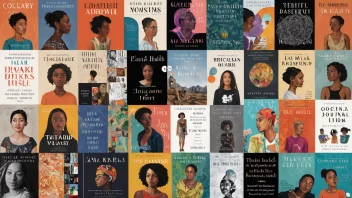When it comes to literature, the debate between the influence of non-fiction and fiction on popular culture is both fascinating and complex. While both genres serve unique purposes and resonate with audiences in different ways, their impact on society, values, and cultural narratives varies significantly. This article seeks to explore these differences, highlighting the pros and cons of each genre and their respective roles in shaping popular culture.
Defining Non-Fiction and Fiction
Before diving into the comparison, it is essential to clarify what constitutes non-fiction and fiction. Non-fiction encompasses works that are based on real events, facts, and actual people. This includes biographies, memoirs, essays, journalism, and self-help books. In contrast, fiction refers to literature that originates from the imagination of the author, including novels, short stories, and plays. While fiction can be inspired by real events, it is ultimately a product of creative storytelling.
Impact on Society
Non-Fiction's Role in Shaping Perspectives
Non-fiction has a profound ability to inform, educate, and influence public opinion. Through factual accounts and analytical insights, non-fiction can challenge societal norms and raise awareness about critical issues. For example, works like The Immortal Life of Henrietta Lacks by Rebecca Skloot and Educated by Tara Westover have sparked discussions on ethics in medical research and the importance of education, respectively.
Fiction's Power to Inspire Empathy
On the other hand, fiction often serves to evoke emotions and foster empathy. By immersing readers in diverse characters' lives and experiences, fiction allows individuals to step into someone else's shoes. Novels like To Kill a Mockingbird by Harper Lee and The Kite Runner by Khaled Hosseini have addressed themes of racism, redemption, and human connection, influencing readers to reflect on their values and societal roles.
Engagement with the Audience
Non-Fiction's Educational Approach
Non-fiction tends to engage readers through the dissemination of knowledge. Its structured format often includes research, data, and real-life examples, appealing to those seeking information and understanding. This genre is particularly popular among readers who value facts and are looking for actionable insights that can apply directly to their lives.
Fiction's Emotional Resonance
Conversely, fiction captivates audiences through narrative and character development. It invites readers to lose themselves in stories, making them emotionally invested in the characters' journeys. This emotional engagement can lead to a deeper connection to the themes presented in the narrative, often resulting in lasting impressions that influence personal beliefs and attitudes.
Pros and Cons of Non-Fiction and Fiction
Pros of Non-Fiction
- Educational Value: Non-fiction provides factual information and insights that can educate readers on various subjects.
- Real-World Relevance: The themes and narratives in non-fiction are often directly applicable to current societal issues.
- Informed Decision Making: Non-fiction can guide individuals in making informed choices in their personal and professional lives.
Cons of Non-Fiction
- Potential Bias: Non-fiction can be subjective, and the author's perspective may influence the portrayal of facts.
- Lack of Narrative Depth: Some readers may find non-fiction less engaging due to its emphasis on facts over storytelling.
Pros of Fiction
- Emotional Engagement: Fiction allows readers to connect with characters and themes on a personal level.
- Creative Expression: It provides a platform for authors to explore abstract concepts and ideas through imaginative storytelling.
- Diverse Perspectives: Fiction often highlights different cultures and experiences, promoting understanding and empathy.
Cons of Fiction
- Less Educational: While fiction can convey themes, it may not always provide factual information.
- Escapism: Some argue that fiction can lead to escapism, diverting attention from real-world issues.
Literary Trends and Cultural Relevance
Both non-fiction and fiction evolve with societal changes, reflecting current trends and cultural shifts. In recent years, there has been a notable rise in memoirs and personal essays within the non-fiction genre, allowing individuals to share their unique stories and experiences. This trend has contributed to the popularity of authentic narratives that resonate with readers seeking relatability and inspiration.
In contrast, fiction has seen a resurgence of interest in genre-blending, where authors combine elements of fantasy, science fiction, and realism to create innovative narratives. This trend reflects a desire for creativity and a break from traditional storytelling conventions, appealing to a wide range of readers.
Conclusion
In conclusion, while non-fiction and fiction both play significant roles in shaping popular culture, they do so in distinct ways. Non-fiction excels in educating and informing readers, providing insights that can influence real-world perspectives and actions. Fiction, however, offers emotional depth and creative expression, fostering empathy and understanding through its narratives. Ultimately, the choice between non-fiction and fiction may depend on individual preferences and the desired impact on the reader's life. For those seeking knowledge and factual information, non-fiction is ideal, while those looking for emotional engagement and imaginative storytelling may gravitate towards fiction. Both genres are invaluable, and their interplay continues to enrich the literary landscape and cultural discourse.






